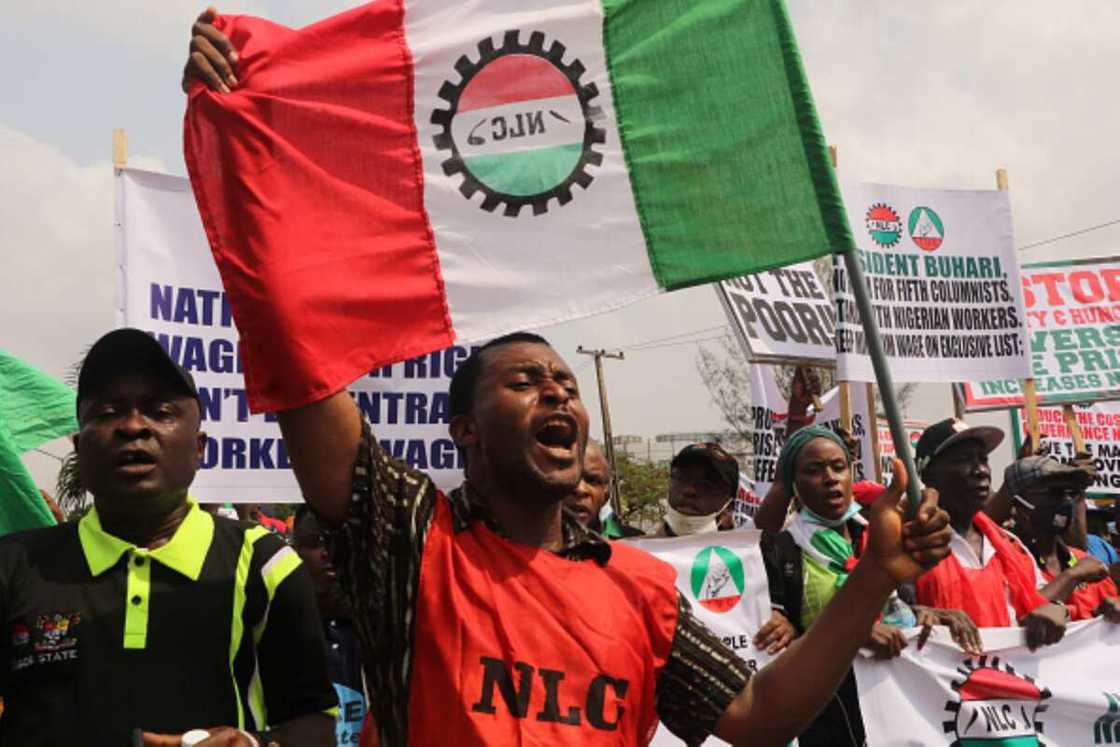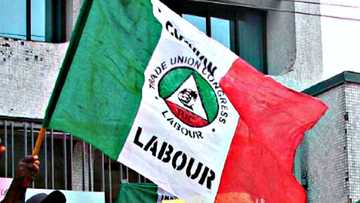OPINION: Who Says NLC Is a Self-Serving Union? By Lynn Agwuncha
Editor's note: Lynn Agwuncha, communications officer, Peering Advocacy and Advancement Centre in Africa -PAACA, writes on the enlarged role of labour and trade unions in the provision of economic benefits to their members and the society at large.
PAY ATTENTION: Join Legit.ng Telegram channel! Never miss important updates!
The labour and trade unions’ decision to address the abundance of abandoned projects across the country, is by far the most strategic means of sustaining ownership of the anticorruption fight among citizens. This is evident in the collective power, energy, intellect and competence that is brought together in solving problems that affect its members.
The power resident in this collectivity of workers, when properly managed has been demonstrated to be effective in influencing positive governance. Since the labour and trade union network against corruption was inaugurated, there have been reports on how their activities led to a revisitation of abandoned projects by contractors; particularly Yahaya Gusau abandoned road project in Kano state, where the network met with traditional leaders to mobilize communities for oversight and also the abandoned four classroom blocks at government Secondary school, Maiduguri; Here, the network realized the contractor was fully mobilized, yet abandoned the project.

Source: Getty Images
PAY ATTENTION: Install our latest app for Android, read the best news on Nigeria’s #1 news app
They visited the State Universal Basic Education Board and got them to follow up with the contractor, who came back to continue the project. Meanwhile, monitoring is still ongoing to ensure the projects are not abandoned again. This clearly shows that where labour and trade union functions independently for the greater good, there is a grassroots actor pushing for transparency and accountability, checking the abuses that emerge from corners of power among a small elite.
Apart from the enlarged role of labour and trade unions in the provision of economic benefits to their members, the most important function is in the development of society. As an organised body, they are relevant in the fight against corruption due to their intellectual capacity and reach in areas of budget implementation, constituency project implementation and collective bargaining. The effect of Labour and trade unionism in good governance calls for cooperative spirit in other to maintain a stable and sustainable economic and political development in the country.
Although there have been records of distraction and improper urgency by some of the unionists, with the recent successes recorded as a result of their involvement in tracking abandoned projects, one can only imagine the positive influence labour and trade unionism could have in Nigeria if proper guidance and support are given to them by the government and other superior agencies.
This network has also proven to be useful in near hazardous situations where projects are implemented with inferior materials. The renovation of the health post at Otioru, Akwa Ibom state was monitored by the labour and trade union network to avoid the risk of having yet another abandoned project. While monitoring, the network noticed and complained about the quality of doors fixed and had them replaced the following day, as well as the piled refuse dump that got cleaned up after their formal complaint.
If this intervention hadn’t happened unanimously, the contractor would have probably enriched himself at the expense of the welfare and the lives of citizens. Little wonder the Enugu state chairman of Trade Union Congress, Comrade Ben Asogwa stated that “The only way we can be serious about the anti-corruption is when we do so irrespective of tribal inclinations, religious relationships and political affiliations.”
The initiative by Peering Advocacy and Advancement Centre in Africa, under its Say No Campaign Project to position the Nigeria Labour Union and Trade Union Congress in states like Enugu, Akwa Ibom, Kano, Borno, Edo, Lagos and the Federal Capital Territory, as critical stakeholders that will use their influence to evoke accountability from relevant government institutions, has birthed numerous changes, especially an outlook shift; realizing that they have a major role to play towards enjoying good governance, by owning the anticorruption fight and making the system work for public good.
The president, Nigeria Labour Congress (NLC) during an anti-corruption dialogue session in the Federal Capital Territory said “It is high time we collaborate with larger civil society organizations and Nigerians to address this evil that is bedevilling us.” Though the statement has been put to action in different states, expectations are still high.
The fight against corruption is not specifically placed on the shoulders of the Labour and Trade union, it is a collective task and so encourages general cooperation of all citizens in order to boost the economic, and political status of the country. As international anti-corruption organizations like Macarthur Foundation continue to support local organizations to address anti-corruption issues in the country by exciting citizens’ participation, the cooperation of government agencies is equally needed to gain sufficient traction and sustain the confidence of citizens.
Thankfully, the current government has a said political will to fight corruption Besides, the Akwa Ibom state commissioner, Independent Corrupt Practices and other related offences Commission (ICPC), Mr. Shola Shodipo said “we want you to see the Commission as a dependable partner in efforts to reduce corrupt practices in the country. Our doors are open to work with you in incidences of corruption,” during an anti-corruption dialogue. We hope the government will be willing to justly open their “doors” to union members with genuine concerns towards address progressing corruption issues in the country.
It is noteworthy that the activities of the Nigeria Labour Union and Trade Union Congress are beyond the interest of their members, but also for public good. As the Executive Director, Peering Advocacy and Advancement Centre in Africa, Comrade Ezenwa Nwagwu rightly told union members, “Any activism that does not provide leverage for public good is mere self-glorification and irrelevant. This is the kind of legacy we want the unions to think about, as there is no greater legacy than making our communities much better than we had met it for the sake of our children and generations unborn.”
Disclaimer: The views and opinions expressed here are those of the author and do not necessarily reflect the official policy or position of Legit.ng.
Your own opinion articles are welcome at info@corp.legit.ng— drop an email telling us what you want to write about and why. More details in Legit.ng’s step-by-step guide for guest contributors.
Contact us if you have any feedback, suggestions, complaints, or compliments.
Source: Legit.ng





